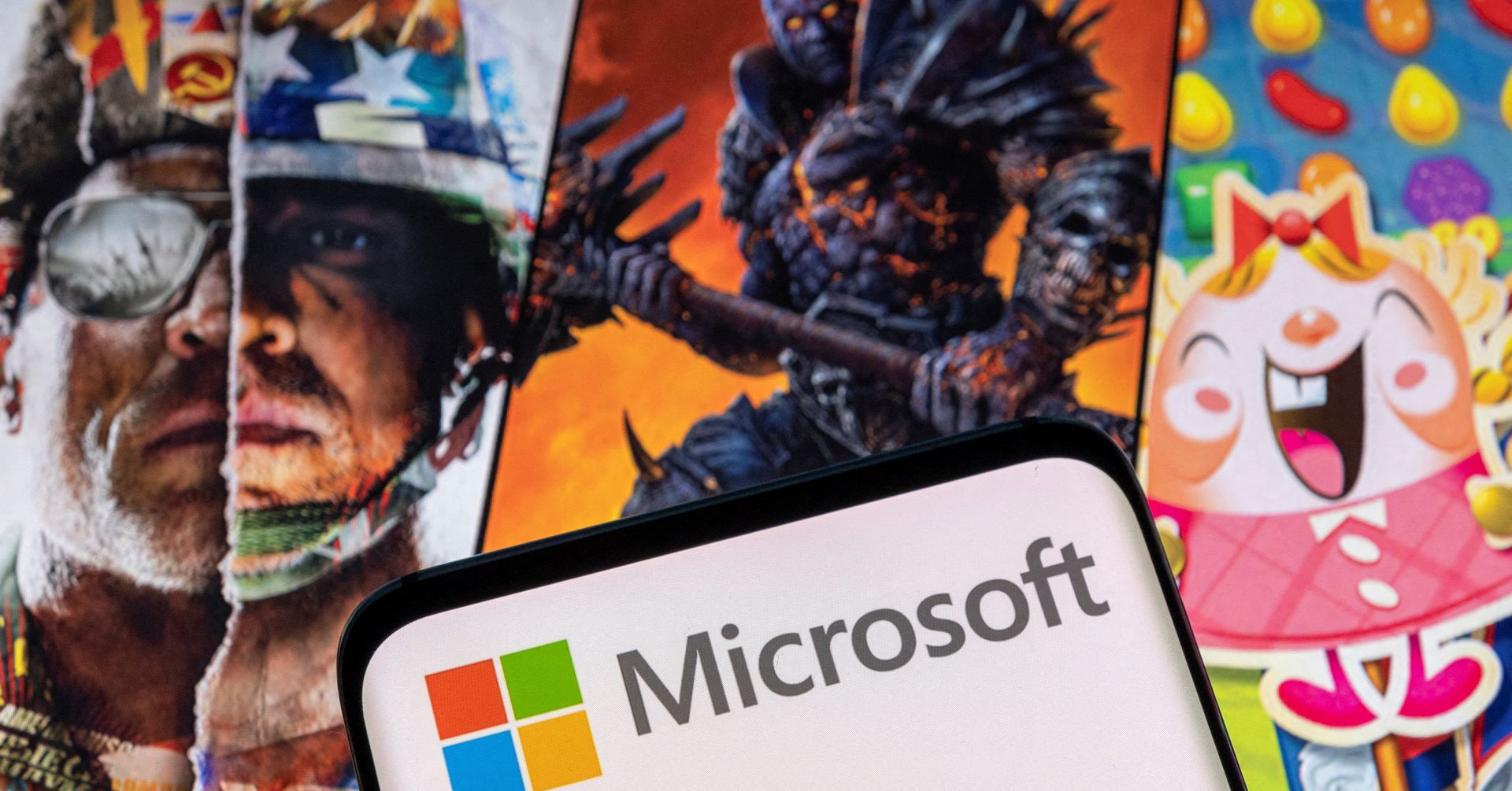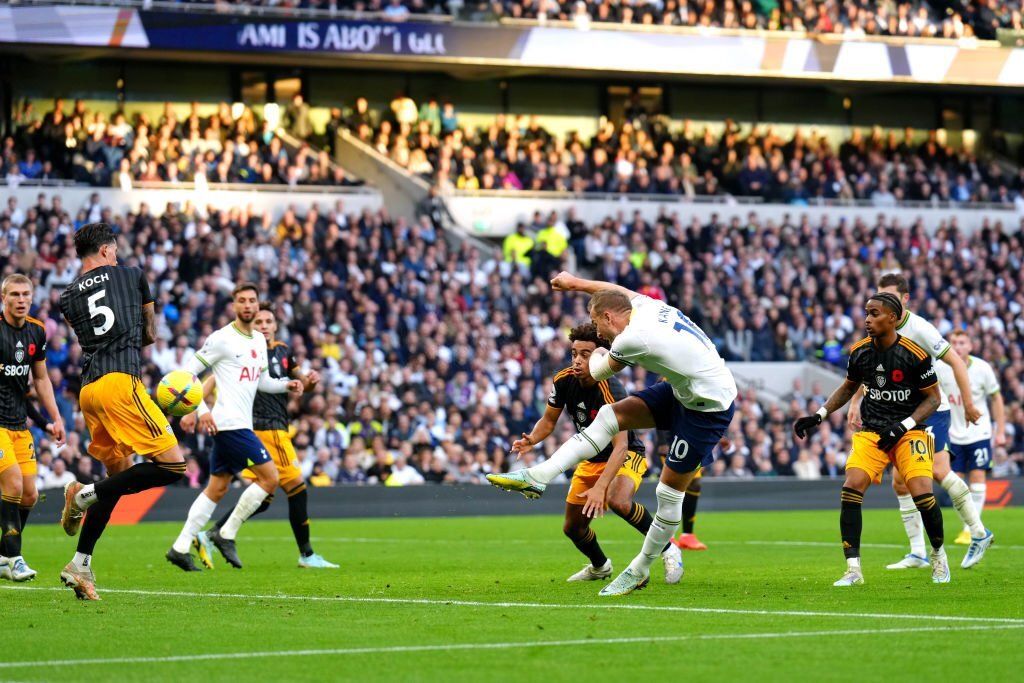Microsoft-Activision Merger: FTC Files Appeal Against Court Ruling

Table of Contents
The FTC's Arguments Against the Merger
The FTC's opposition to the Microsoft-Activision merger centers on concerns about anti-competitive practices and the importance of preserving a diverse and competitive gaming market.
Concerns about Anti-competitive Practices
The FTC argues that the $69 billion Microsoft-Activision merger would stifle competition, particularly regarding popular franchises like Call of Duty. This acquisition would consolidate significant market power in Microsoft's hands, potentially leading to several negative consequences for consumers and the industry as a whole.
- Reduced competition would lead to higher prices for consumers. By eliminating a major competitor, Microsoft could justify raising prices for Activision Blizzard games, including popular titles like Call of Duty, World of Warcraft, and Candy Crush.
- Microsoft could limit the availability of Activision Blizzard games on rival platforms. This could mean Call of Duty, for example, becoming exclusive to Xbox consoles and potentially hindering the success of PlayStation and other gaming platforms.
- The merger could give Microsoft an unfair advantage in the cloud gaming market. Control over Activision Blizzard's vast catalog of games would significantly bolster Microsoft's Game Pass subscription service and its cloud gaming ambitions, potentially harming competitors. This could lead to a less diverse and innovative cloud gaming market.
The Importance of Preserving Competition
The FTC's core argument emphasizes the need to maintain a healthy and competitive gaming ecosystem. The agency believes that allowing this merger to proceed would set a dangerous precedent, allowing for the concentration of power in the hands of a few tech giants and harming the broader gaming landscape.
- The ruling allows for a monopoly to form within specific gaming sectors. The FTC contends that the merger would create a near-monopoly in certain key gaming areas, diminishing consumer choice and innovation.
- Independent game developers would face an unfair disadvantage. A larger, more powerful Microsoft could make it harder for smaller studios to compete, potentially hindering creativity and reducing the variety of games available to players.
- Innovation could be stifled due to a lack of competition. A less competitive market often leads to less innovation as companies have less incentive to improve their products or services.
The Judge's Decision and the FTC's Appeal
The initial court ruling allowed the Microsoft-Activision merger to proceed, but the FTC is appealing this decision, citing several key points of contention.
The Original Court Ruling
The judge's decision largely rested on Microsoft's commitment to keeping Call of Duty available on PlayStation and other platforms. The judge found this commitment sufficient to mitigate potential anti-competitive concerns.
- The judge's assessment of the competitive landscape focused on the continued presence of other major players in the gaming market, suggesting that Microsoft wouldn't have a monopoly even after the acquisition.
- Specific arguments made by Microsoft in its defense centered on the continued availability of Call of Duty on competing platforms and the potential benefits of the merger for consumers, such as access to a wider range of games through Game Pass.
- The judge's view of potential harm to consumers ultimately found insufficient evidence to block the merger, believing that Microsoft's commitments adequately addressed the FTC's concerns.
The FTC's Grounds for Appeal
The FTC is appealing the decision, arguing that the judge's assessment was flawed and that the potential for anti-competitive behavior remains significant.
- Evidence presented of anti-competitive practices focuses on Microsoft's past acquisitions and business practices, suggesting a pattern of behavior that aims to limit competition.
- Legal precedents being used to support the appeal aim to demonstrate that previous mergers and acquisitions with similar potential anti-competitive effects were blocked, setting a legal basis for challenging the current ruling.
- The implications of the court's decision on future mergers and acquisitions highlight the potential for setting a precedent that could encourage further consolidation in the tech industry, potentially harming consumers in other sectors beyond gaming.
Implications for the Gaming Industry and Consumers
The outcome of this appeal will have profound implications for the gaming industry and consumers alike.
Potential Impacts on Game Prices and Availability
The merger's outcome could significantly impact the cost and accessibility of popular games.
- Potential price increases for popular game titles. Reduced competition could lead to higher prices for Call of Duty and other Activision Blizzard titles, potentially affecting gamers' wallets.
- Changes to game availability across different platforms. Exclusivity deals could limit the availability of Activision Blizzard games, potentially disadvantaging owners of certain consoles or gaming PCs.
- Impact on subscription services and game streaming. Microsoft's control over Activision Blizzard's catalog could reshape subscription services like Game Pass and the cloud gaming market, altering competition and consumer access.
The Future of Game Development and Competition
The long-term effects extend to game development and the competitive landscape.
- Impact on independent game developers. A more consolidated market could make it harder for smaller, independent studios to compete with the resources and marketing power of a larger Microsoft.
- Effect on innovation and creativity within the gaming sector. Reduced competition can stifle innovation as there's less pressure to create new and better gaming experiences.
- Potential consolidation of game studios under Microsoft's umbrella. The success of this merger could encourage further consolidation, leading to a less diverse range of game publishers and developers.
Conclusion
The FTC's appeal against the Microsoft-Activision merger is a pivotal moment for the future of the gaming industry. The outcome will significantly impact competition, game prices, and the future of game development. The arguments raised highlight critical issues regarding the power of tech giants and the necessity of preserving a fair and competitive market for gamers. Understanding the intricacies of this legal battle is crucial for anyone interested in the future of the gaming landscape. Stay informed about developments in the Microsoft-Activision merger and its implications for the future of gaming. The future of gaming hinges on the resolution of this crucial case, so stay informed about the ongoing developments surrounding the Microsoft Activision merger.

Featured Posts
-
 Hmrc System Failure Thousands Affected By Website Crash In Uk
May 20, 2025
Hmrc System Failure Thousands Affected By Website Crash In Uk
May 20, 2025 -
 The Assault On Clean Energy Challenges To A Thriving Sector
May 20, 2025
The Assault On Clean Energy Challenges To A Thriving Sector
May 20, 2025 -
 Ferraris Update On Charles Leclerc Before The Imola Race
May 20, 2025
Ferraris Update On Charles Leclerc Before The Imola Race
May 20, 2025 -
 Diner Exclusif Rooftop Galeries Lafayette Biarritz Imanol Harinordoquy Et Jean Michel Suhubiette
May 20, 2025
Diner Exclusif Rooftop Galeries Lafayette Biarritz Imanol Harinordoquy Et Jean Michel Suhubiette
May 20, 2025 -
 Tottenham Loanee Crucial In Leeds Championship Return To The Top
May 20, 2025
Tottenham Loanee Crucial In Leeds Championship Return To The Top
May 20, 2025
